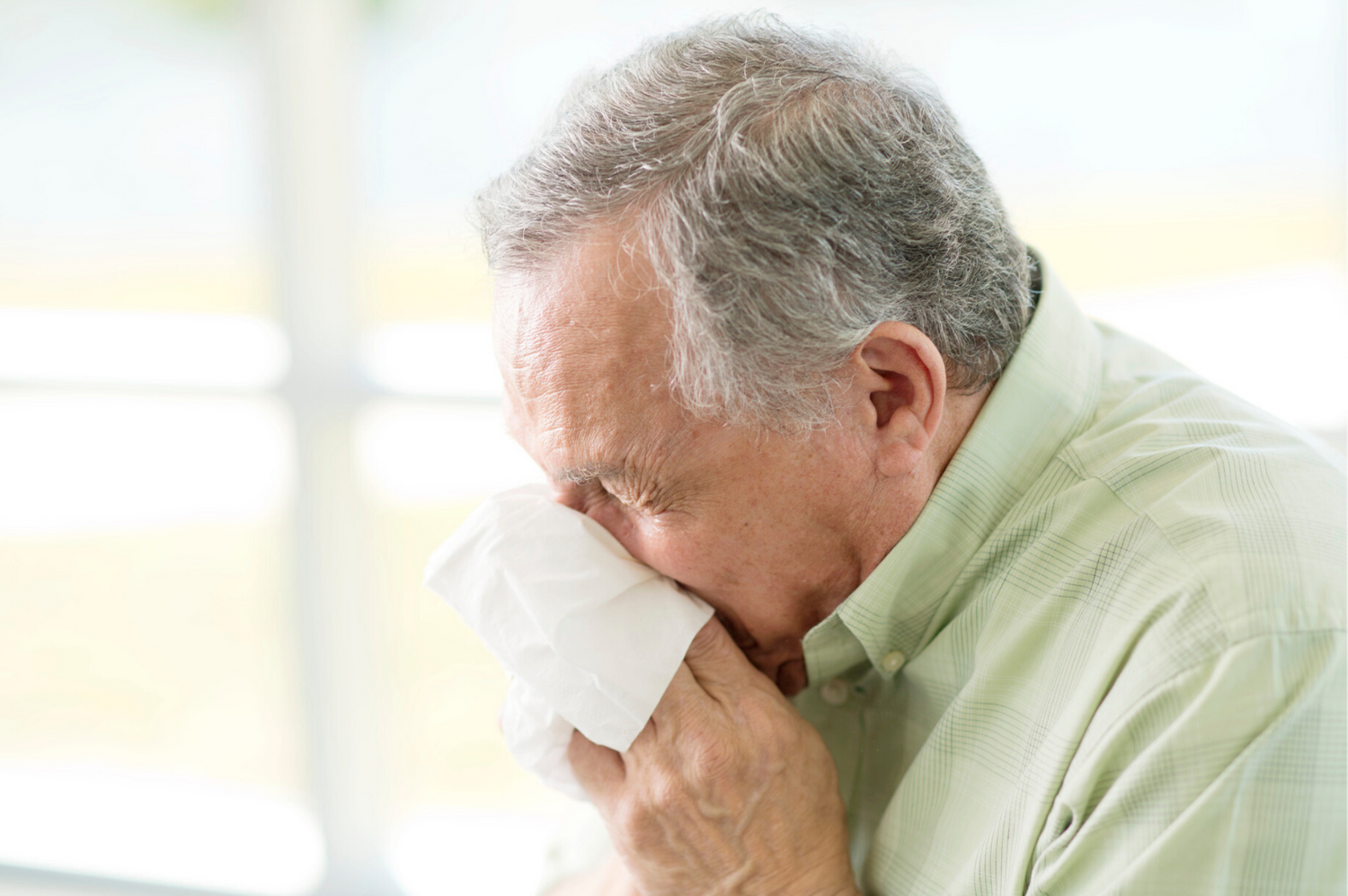Caring for a senior with allergies can be hard to treat effectively.
If you know of a senior suffering from seasonal with allergies, this is how you can help them.
With the temperatures quickly rising, the air will soon be filling up with pollen, spores and other microparticles from the soil and vegetation. Allergies can appear and carry different symptoms:
- Nasal: congestion, loss of smell, redness, runny nose, post-nasal drip, sneezing, or stuffy nose
- Eyes: itchiness, puffy eyes, redness, or watery eyes
- Respiratory: breathing through the mouth or wheezing due to congestion of nasal tract
- General: coughing, fatigue, headache, itching, phlegm, or throat irritation
Download a more detailed allergy report
Allergies are tricky because they come and go. Depending on the season, they can be disguised as a cold or a flu. Symptoms are pretty common – regular sneezing, a runny nose and watery eyes. This creates a general feeling of discomfort which makes the whole experience unpleasant.
Can you develop allergies later in life? Yes.
Tens of millions of people in the US are subject to allergies every year, and often our seniors with allergies are the ones impacted the most. The elderly usually have other ailments that might increase allergy induced discomfort and unwanted visits to the doctor.
Alzheimer’s effects on a senior with allergies
It can be difficult to diagnose seasonal allergies for those with Alzheimer’s disease, or other dementias. This will require a little bit more detective work by the helper. You’ll have to rely on contextual clues to see if they are being afflicted by allergies.
If you notice a sudden change in behavior – increased restlessness & wandering, more agitation, difficulty sleeping, or other deviations from the norm, you may want to see if allergies are the cause. Just keep an eye out for increased nasal drip, irritation around the eyes, or a constant clearing of the throat.
Here are some of our top ways to greatly reduce the risk of allergies or their effects
- Limit your time outdoors
If you have to go out with a senior with allergies and you know he or she could be affected, consider buying them a mask to wear. These might look silly at first, but they’re very helpful. They stop the particles from penetrating the inside of your nose. Thus, this can greatly reduce sinus inflammations.
- Take antihistamines if possible, but remember to ask your doctor first! Self-medication can be very bad for you, especially with the most potent types of antihistamines. These can cause side effects if taken with other medicines. Antihistamines can be taken as capsules, nasal spray or eye drop form.
- Vacuum and remove dust more often
Helpers are extremely good at keeping company. They also can help maintain house cleanliness during these tough months. We therefore recommend asking us about this service when requesting a helper.
- Neti Pots and Saline Nasal Sprays (Our favorite trick that works wonders)
Neti pots are water-based solutions that act topically and work to soften the mucus inside your nose and sinuses. These solutions can help increase the speed and improve coordination of cilia, the structures inside your nose. This increases their effectiveness and remove the allergens more rapidly from your sinuses.
Lastly, don’t forget to make sure your Neti Pot is washed after each use! Always remember to ask your doctor for advice if you’re unsure which one of these is an appropriate medication to treat allergies in older adults!




